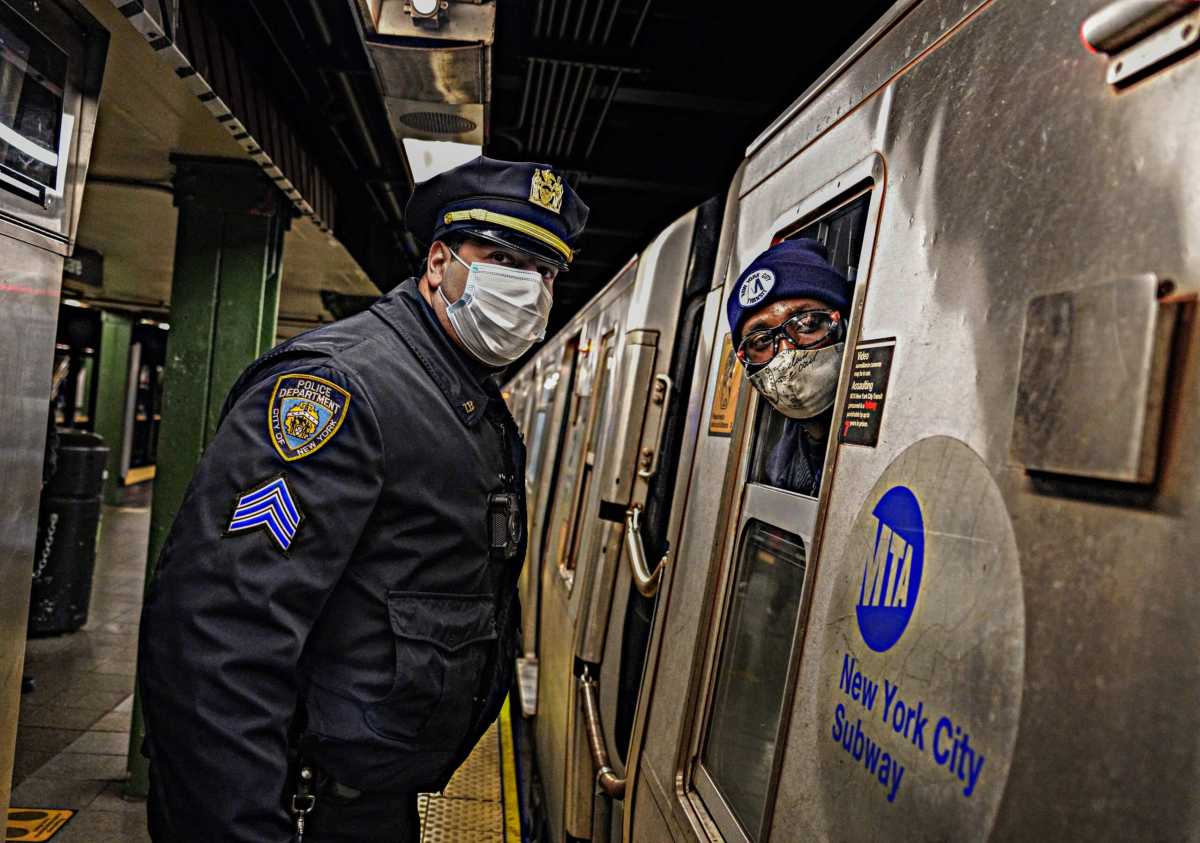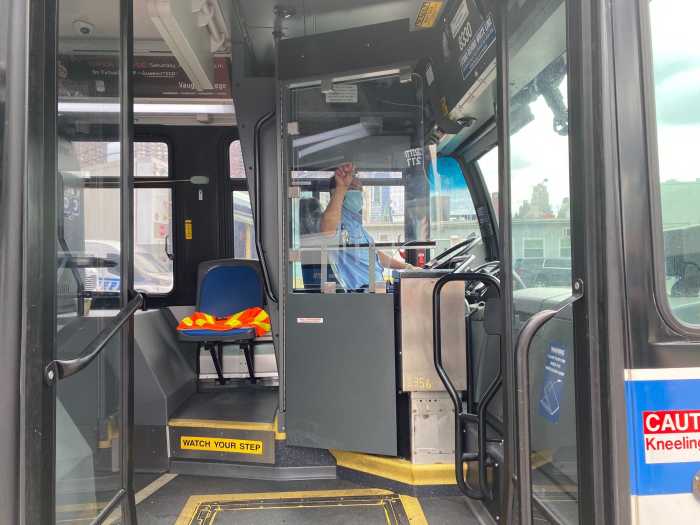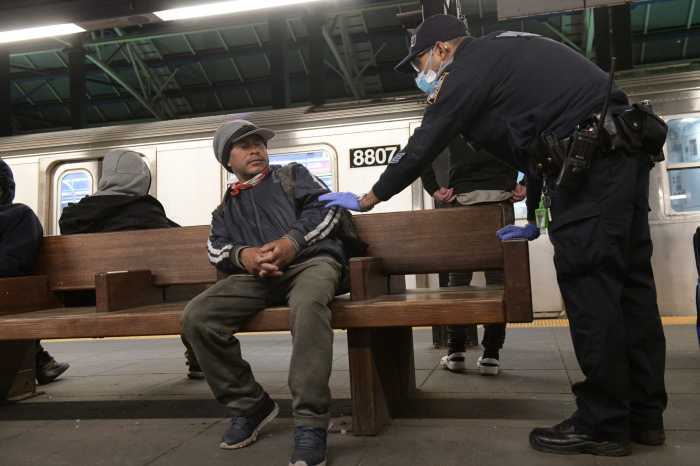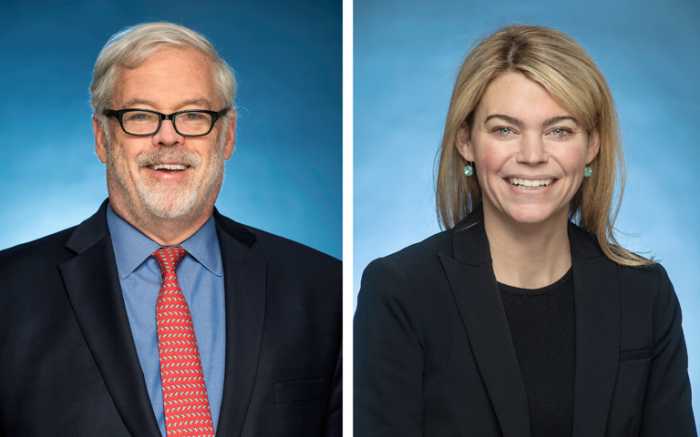Union leaders across the city, especially those representing transit workers, are asking Mayor Bill de Blasio for a more effective police presence in subways and buses to deter crime after four MTA employees were assaulted on Thursday.
The request from the unions was simple: place cops not at turnstiles, but on platforms, trains and buses to deter crime where it happens most, as well as deploy mental health workers to crime hotspots within the system.
“Some weeks, crime numbers are up and at intolerable levels; other weeks, the data looks better. But one thing remains the same – the system just does not feel as safe as it used to or as safe as it could be,” the letter stated. “Regardless of the cause for this, now is the time to address it. No one should be afraid to use these basic transit services, especially the heroic women and men in our ranks, who have sacrificed so much to keep the city going during one of its darkest hours.”
Last week, during the Metropolitan Transportation Authority’s monthly board meeting, interim New York City Transit President Sarah Feinberg and other officials sparred with NYPD Transit Chief Kathleen O’Reilly who believed the agency was fear-mongering with demands for more policing. O’Reilly stated that crime stats remaining nearly the same despite a relative increase in ridership was proved that there is not an issue with safety.
A survey from the MTA showing that New Yorkers do not feel safe despite this was heavily debated as enough to warrant more policing. Crime is down 32% with 175 total cases in March 2020, 118 cases reported last month.
“The numbers should be in a better place, given how low ridership is right? I mean if we were at regular ridership those numbers would be wonderful, but the truth is we are about 30%, so I’d like those numbers to be down further. But the reality is, it matters how you feel in the system,” Feinberg said in a Monday morning interview on NY1.
In an earlier interview on Monday, she asked the mayoral administration to consider the MTA’s request less personally: s”I think that perhaps the City takes it as a criticism. It’s not a criticism. I’m just saying let’s find some ways to work together, to make it easier for people to come back. I really think as I look at this system, the next three to six months are critical, you know, bringing the city back in the next three to six months is critical. Let’s make sure that when people reenter the system they feel comfortable, they feel confident, they feel good about safety from COVID, they feel good about safety from crime and harassment. That’s what’s going to bring the city back.”
The de Blasio administration, it would seem, is not completely at odds with O’Reilly’s statements in the April board meeting in that they did not commit to changing how the NYPD would patrol the system going forward.
“We couldn’t agree more: mass transit is the key to a recovery for all of us,” mayoral spokesman Mitch Schwartz said of the letter from union brass. “That’s why the City has put hundreds of officers in the system and deployed 24/7 social service outreach teams. Crime is at record lows as ridership continues to increase, and we’d like the MTA to work with us to keep it that way.”
Transport Workers Union, New York State AFL-CIO, the New York City Central Labor Council, District Council 37 and the Retail, Wholesale and Department Store Union signed onto the letter.































